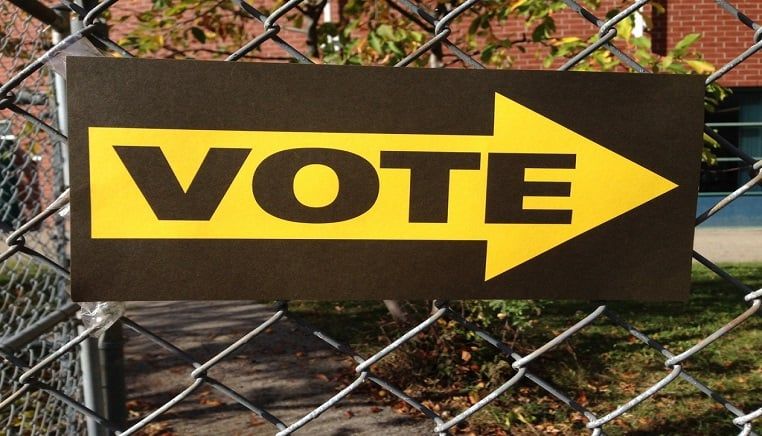
The ongoing Assembly poll in Jammu and Kashmir, now in the penultimate stages, is remarkable for several reasons, above all for the peaceful manner campaigning has proceed thus far. A peaceful poll in J&K may be a harbinger of returning normalcy in the hitherto troubled region. It is remarkable too that along with regional parties such as the National Conference of the Abdullahs and the Peoples Democratic Party of the Muftis, and the two national parties, the Congress and the BJP, there are a few well-known independent players openly backed by the extremist elements in the poll fray. The first election since the abrogation of the controversial Article 370 in 2019, the outcome could have a bearing on the Center’s commitment to restore J&K’s statehood. The Centre would do so provided prospects of lasting peace return to the Valley. Popular participation in the poll if followed by the emergence of a stable government would greatly help the Centre keep its word on statehood. By all accounts, the two regional parties are fighting with their backs to the wall in this election. Even Omar Abdullah, the National Conference leader, was playing safe, contesting from two constituencies. Other NC candidates too are feeling the pressure from independents backed by the Jamaat-e-Islami. Engineer Rashid, who defeated Omar Abdullah in the Lok Sabha poll, has emerged as a key player in the Assembly poll as well. In fact, he is accused by the leaders of the regional parties of colluding with the central government, a charge Rashid vehemently denies. However his release on bail to allow him to campaign in the on-going Assembly poll does seem suspicious.
In the Jammu region, the BJP expects to bag a large number of seats, while it hopes to open its account in the Kashmir Valley. However, the most likely outcome of the poll is a hung assembly. Observers believe that no party or coalition would be anywhere near the half-way mark. Such a situation seems tailor-made for the centre to play its hand and arrange a friendly government in Srinagar with the help of a number of unattached winners. The point is that the central authorities will be dead-set against any government which could pose a threat to the continuance of relative peace and normalcy established after a prolonged spell of central rule. The bitter truth is the tap of jihdai terror has run dry after decades of overflowing due to Pakistan’s stringent economic and social conditions. Pakistan is hard put to establish a modicum of normalcy in its north-western region. It can barely contain the raging violence on its border with Afghanistan. Also, ordinary Kashmiri men and women have suffered enough during the last three decades of relentless jihadi violence and counter- violence for them to want to countenance the prospect of its return yet again. If the Assembly poll throws up a semblance of a representative government, ending the decade-long rule by fiat from New Delhi, and such a government sincerely seeks to fulfill the aspirations of people for decent education, jobs and socio-cultural autonomy the abrogation of Article 370 would have served its purpose. A lot is at stake in this election in J&K.
Displaying eatery owner’s name is not communal
The controversy over restaurants and wayside eateries mandatorily displaying owners’ names has needlessly acquired a communal colour. Probably, the culprit was the timing of the UP Government order which came when the annual kanwariya yatra was in full flow. However, the decision of the UP Government seen through the prism of food safety and public health cannot be faulted and should not be faulted. It is unexceptionable and in fact should be enforced by all state governments. Food contamination and adulteration is a widespread malaise, seen in all parts of the country. Inferior quality of ingredients harmful to human health and adulterated milk and oils usually go unchecked. Owners of unregulated eateries specially run afoul of basic hygienic precautions, serving customers unwholesome adulterated food by the roadside in dirty surroundings. Why, there have been cases of well-known eateries found to be using inferior and adulterated ingredients such as dals and masalas and oils. Not long an iconic brand of luxury hotels was penalised for using adulterated asafoetida (hing). People of a certain age would remember the sign invariably hung in various restaurants claiming that they used a particular kind of milk. In short, if the owners of commercial vehicles in the interest of public safety and road safety law enforcement can be made to display the names of their owners, if the producers of medicines are obliged to display the name of the pharmaceutical company which manufactures them, why should it be problematic for the owners of eateries to display their names on food stalls. Its small cost cannot be a reason. Customers’ need to know the owners’ name in no way hurts his cause. And if it does, it is too bad. Whether or not one wants to patronise a particular eatery ought to be a personal choice, and an informed choice too. Inserting the insidiousness of secularism in this straightforward matter of an owner of an eatery displaying his name, just as the makers of medicines and wines and packaged food stuffs do, can in no way be communal. The Congress Party, typically, stepped in to stop the party government in Himachal Pradesh from following the lead of the Yogi Adityanath government in making it mandatory for food sellers in the State to display their real identities. Again, the party was pandering to the Muslim minority unmindful of the larger concerns of public safety and health. In fact, the secular spirit is strained when members of one community are to run businesses misusing the names of other community. Secularism is also an ability to defend one’s real identity.